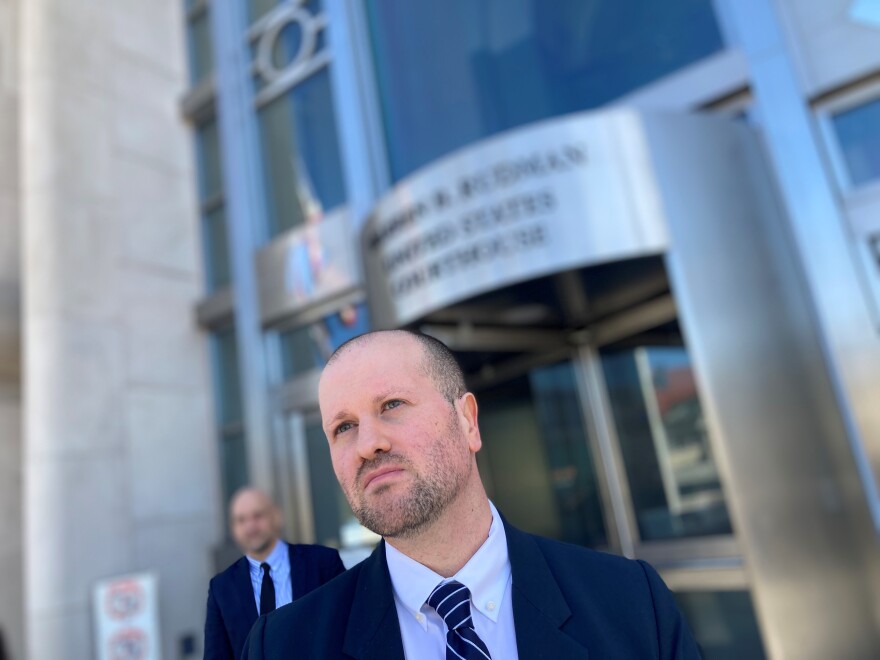The New Hampshire Attorney General’s office told a federal judge Wednesday that requiring new voters to show a birth certificate or passport is reasonable and necessary to protect the integrity of state elections.
The , which took effect last November, requires all first-time registrants to present documents to prove their citizenship — representing the strictest voter registration policies in the country. It quickly drew a court challenge from voting advocacy groups, who argue that there’s no evidence that ineligible voters are participating in New Hampshire elections, and the new law is disenfranchising eligible residents.
“The impact of this law has already begun,” Jacob van Leer, an attorney with the ACLU, told Judge Samantha Elliott during Wednesday’s hearing in Concord. Van Leer that dozens of people who attempted to register at the polls during Town Meetings in March were initially turned away because they lacked documentary proof of their citizenship.
The fight over the future of New Hampshire’s citizenship requirement comes as Republicans in Congress are pushing to enact similar rules nationwide. That measure, known as the , is likely to face challenges in the Senate, where Democrats have enough votes to block the bill.
Under the New Hampshire law, anyone seeking to register to vote must have documents in hand proving their citizenship, ending a decades-old policy that allowed new voters to sign legally binding affidavits if they failed to bring certain documents to the polls on Election Day.

Those behind the court challenge heard Wednesday include the Coalition forOpen Democracy and the League of Women Voters, as well as five individual plaintiffs. Another filed by the New Hampshire Youth Movement makes similar allegations.
Wednesday’s hearing centered on whether the case should be dismissed at the state’s request, or if it should head to trial.
“This is a policy choice made by the people of New Hampshire,” said Michael DeGrandis, with the New Hampshire Attorney General’s office. He said the groups behind the lawsuit failed to provide concrete proof that the new law is overly burdensome.
Much of the hearing focused on whether the plaintiffs have the legal standing to challenge the documentary proof of citizenship requirement. Elliott, the judge presiding over the case, declined to rule on the matter immediately, but noted that she would make a decision as soon as possible. A trial in the case is already scheduled for next February.
During this spring, dozens of would-be voters were initially turned away from registering for failing to bring proof of their citizenship to the polls. Some of them did return with the required documents. In one case out of Londonderry, an 18-year old was able to obtain a photograph of her birth certificate from her mother, who texted an image of the document. At least two women faced questions while attempting to register to vote because their legal names no longer matched the names on their birth certificate, a problem the ACLU says shows the law's potential disparate impact on certain groups of residents.
“We're already seeing town moderators, town supervisors who are coming to us and saying this is having a real impact on folks who are trying to register,” van Leer told reporters after the hearing.
The Republican National Committee and New Hampshire Republican Party are also defending the law in court. Richard Lehmann, who’s representing the GOP in court, argued the state has an interest in ensuring that every participating voter is qualified to do so. He noted that there have been dozens of elections in New Hampshire decided by a single vote.




